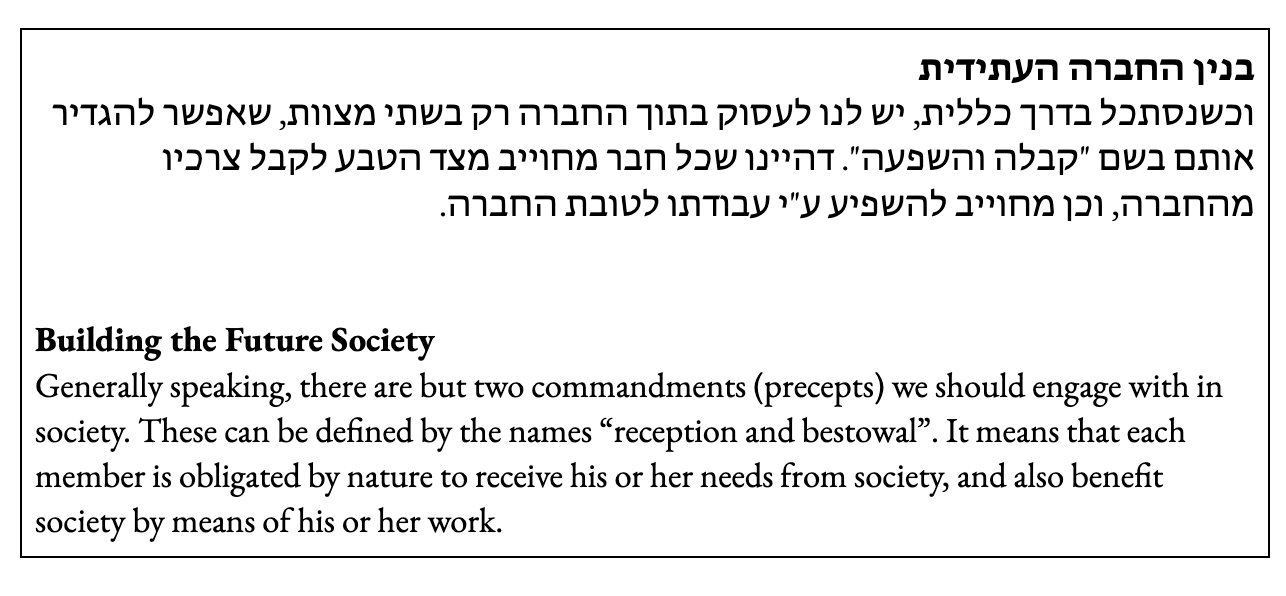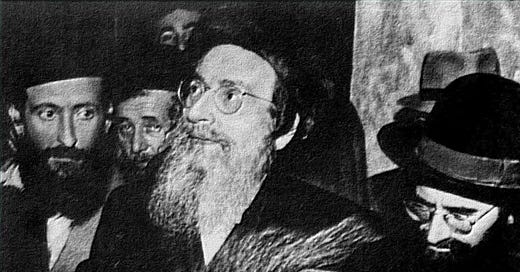Kabbalah, or Jewish mysticism, is often considered a subject focused on personal introspection, the stuff of candle-lit vigils and soul-searching hippies. But for Rabbi Yehuda Leib Ashlag, the Ba’al HaSulam, Kabbalistic theology beckons not only towards individual spiritual fulfilment, but also towards radical, socialist theories about economic and political justice.
Lurianic Kabbalah teaches that, before creation, the divine was limitless and undifferentiated. In order to create the world as we know it, the holy one contracted from this infinite form. Imagine starting with infinite light, shining in all directions with infinite brightness. To create the world as we know it, God poured this light into vessels, like splitting up the infinite glow into a bunch of lamps and scattering them around a dark room.
The Ba'al HaSulam teaches that this process of creation was the ultimate form of divine generosity. In his writings, Ashlag portrays God as the paramount 'giver', while humans are fundamentally 'takers' or 'receivers' of this divine light. The Ba'al HaSulam suggests that our responsibility is to move from being simple “takers” to a consciousness of both receiving and giving. For Ashlag, this shift needs to happen on both the spiritual and material levels.

The challenge, then, lies in resisting our pervasive culture of individualism in our society. In his series of essays, Kuntres Matan Torah, Ashlag describes the resistance to individualism as part and parcel of the mitzvah of loving one’s neighbour.
The Ba’al HaSulam writes that becoming “givers” as well as “takers” “means that each member is obligated by nature to receive his or her needs from society, and also benefit society by means of his or her work."
If this quote bears a striking resemblance to the Marxist aphorism “from each according to his ability, to each according to his need,” it’s not by accident. Ashlag, who moved from Poland to Mandate Palestine in 1922, was an avid reader of European philosophy and focused much of his career on connecting kabbalistic theology to political theory.
Ashlag’s desire to transform society by shifting towards a “giver” mentality also has resonances in feminist theory today. Moral philosopher Kate Manne posits that, in our society, people are generally split into two categories: human beings and human givers.
Human Giver Syndrome, Emily Nagoski & Amelia Nagoski
First, there are human beings, who have a moral obligation to be their full humanity…They have a duty to be as competitive, entitled, and acquisitive as they need to be in order to maximize their human potential.
And then, there are the human givers who have a moral obligation to give their full humanity…They have a duty. To give everything they have- their time, their attention, their patience, their love, their rest, their bodies, their hopes and dreams, their very lives sometimes, sacrificed on the altar of other humans' comfort and convenience.
The Nagoski sisters suggest that, for mothers who are burnt out by endless caretaking, or low-wage workers taking double shifts to support their families, the answer is not to “lean in” and compete by asserting their rugged individualism. Rather, it is to surround themselves by fellow givers, creating a microcosm of mutuality and care.
Admittedly, Manne and the Nagoski sisters were likely not familiar with Ashlag’s work. Nonetheless, they share a similar vision for the future defined in equal measure by giving and taking.
Rosh HaShanah is the day of the Jewish year when we celebrate the creation of the world. We read the words: היוֹם הרת עולם, “This is the day the world was birthed,” harkening back to God’s ultimate gift of creation. As we mark the coming of another year, we might try, in our own small way, to mimic this divine generosity by examining the interplay of give-and-take in our own lives.






This is a wonderful essay. Thanks